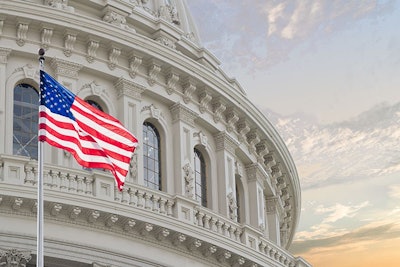
WASHINGTON — In a historic vote Thursday, the U.S. House of Representatives approved a bipartisan measure to protect state cannabis programs against federal interference.
The amendment to the Commerce, Justice, Science, and Related Agencies Appropriations bill prohibits the Justice Department from using funds to prevent states, U.S. territories, and the District of Columbia from implementing laws authorizing the use, distribution, possession, and cultivation of marijuana. The measure, which was sponsored by Reps. Earl Blumenauer (D-OR), Eleanor Holmes Norton (D-DC), and Tom McClintock (R-CA), passed 267-165. A similar amendment approved by voice vote Wednesday prohibits the Justice Department from using funds to prevent Indian tribes from enacting or implementing their own cannabis laws.
Thursday’s vote marks the first time a chamber of Congress has declared that the federal government should defer to state cannabis laws. A similar appropriations rider specific to state medical cannabis programs, known as the Rohrabacher-Farr amendment and then the Leahy amendment, has been in effect since first passing in 2014.
Statement from Neal Levine, CEO of the Cannabis Trade Federation, a national coalition of cannabis-related businesses that lobbied in favor of the amendment:
“The historic nature of this vote cannot be overstated. For the first time, a chamber of Congress has declared that the federal government should defer to state cannabis laws.
“The bipartisan nature of this vote is a strong signal that there would be majority support in the House for the STATES Act, which could be considered a more permanent version of this amendment. We hope the full House will be given the opportunity to vote on the STATES Act in coming months so that we can move closer to the end of federal cannabis prohibition.”

























